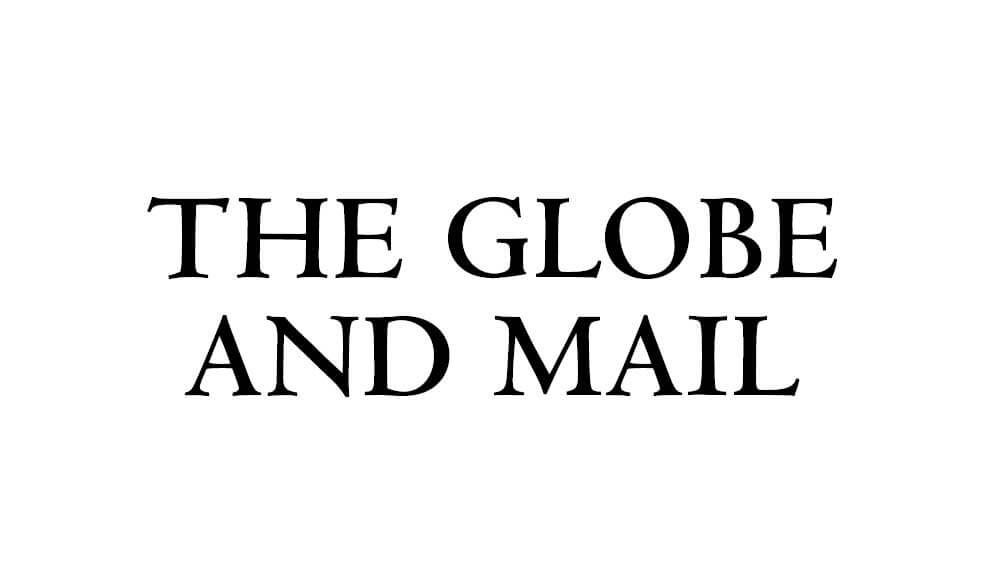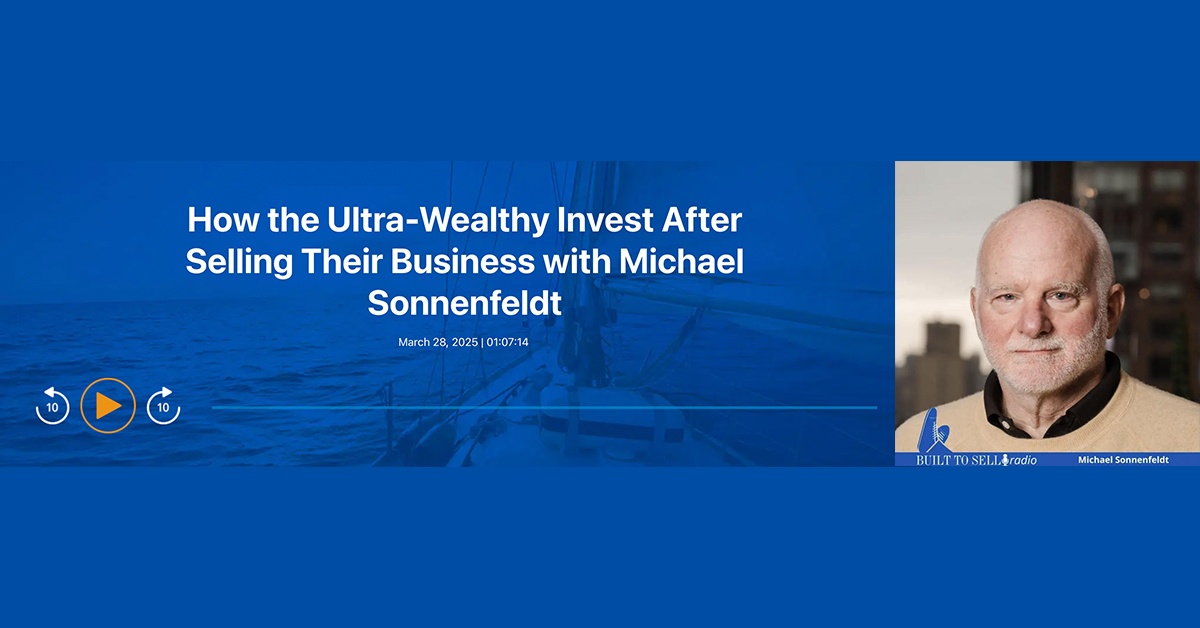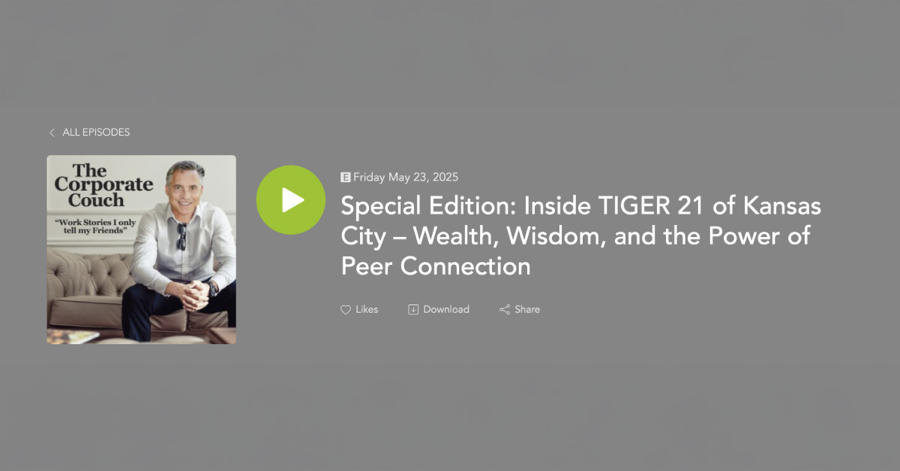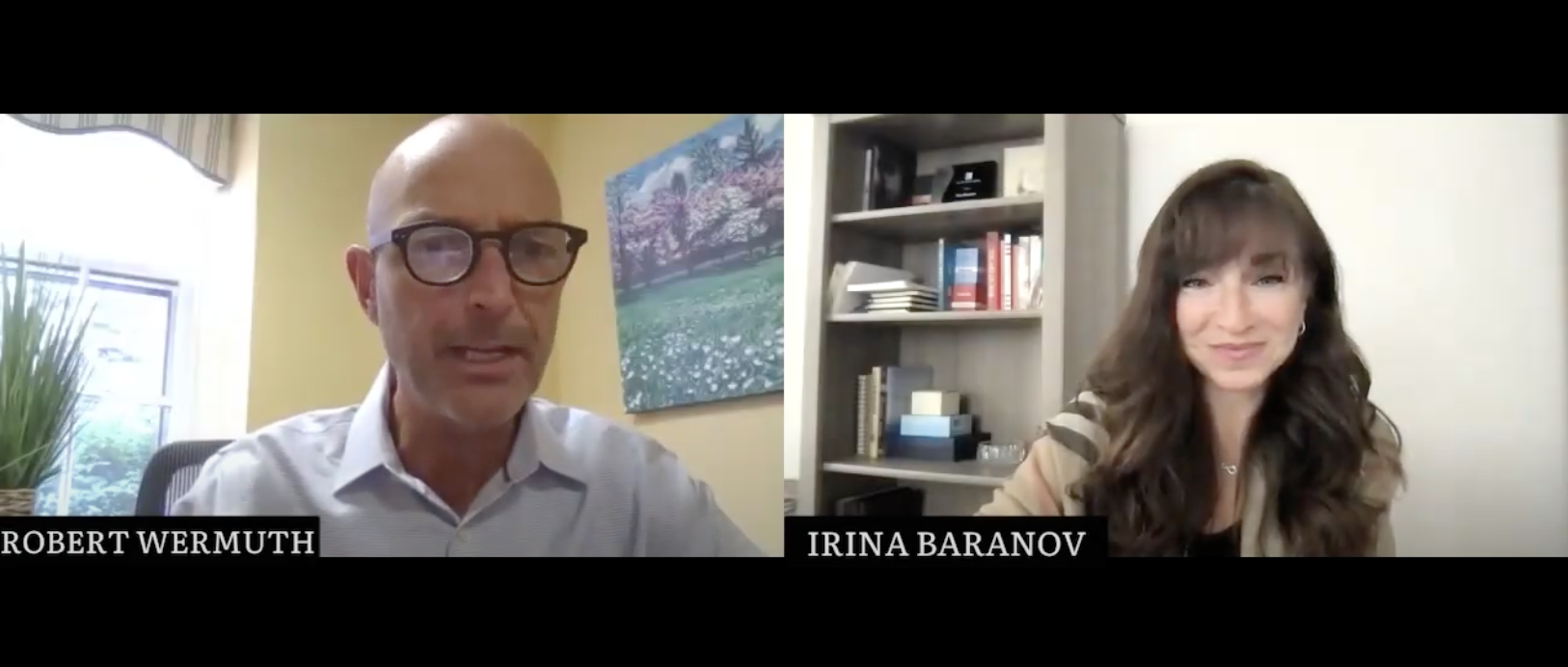TIGER 21 NAMES CO-CHAIR OF MONTREAL CHAPTER

EXPERT’S PODIUMCan you defend your investing strategy?Thane StennerPublished Wednesday, Jun. 05, 2013One of the most intriguing aspects of belonging to TIGER 21 (a peer-to-peer learning and networking group for highnet worth investors/entrepreneurs) is participating in the “Portfolio Defence.” Once a month, one member opens uptheir portfolio, showing their holdings to their 10-plus fellow group members, sharing their broad-level approach tomoney and wealth, answering questions and receiving fellow member feedback.
Over the past few years, I’ve attended over 100 TIGER 21 portfolio defences and I’ve come to see them as one ofthe most valuable learning experiences a wealthy investor could ever go through. So much so, that I believe everyinvestor should experience one, no matter what their net worth.
Of course, you don’t have to be a TIGER 21 member to to ask yourself some of the hard questions that TIGERs askwhile reviewing a portfolio. In fact, you don’t even need a group of friends or fellow investors to go through thedefence with you. All you really need is a sincere desire to learn from your experiences (both good and challenging),and a willingness to confront the hidden assumptions and biases that lie behind your own financial behaviour.
The intention is to put the person on the “warm-but-not-hot seat”: to respectfully grill them about their investmentholdings, to press them about their investment rationale, to shake them out of their complacency, and to challengethe hidden assumptions in their portfolio. I’ve heard members confess that the process is a little challenging at times.
It’s not easy putting yourself out there, and being respectfully viewed by your peers. But make no mistake ‚Äì there istremendous benefit from it.
The typical TIGER 21 portfolio defence is pretty extensive, running about an hour and a half. Whatever is discussedwithin the room stays in the room (every member is under a strict (and legally binding) confidentiality agreement)in order to create a safe place where people who are used to rarely talking about money can actually talk about theirwealth with peers.
The defence usually covers the following topics:
‚Ä¢The qualitative story ‚Äì the individual’s background, passions, motivation, lessons learned, etc. (15 minutes)
‚Ä¢The quantitative story ‚Äì the individual’s net worth statement; asset allocation mix; investment and managerperformance; wealth timeline, etc. (15 minutes)
•Clarifying questions and requests for additional information from the group. (20 minutes)
‚Ä¢”Care-frontational” feedback and suggestions from the Group about possible improvements and potentialblindspots. (20 minutes)
•Next steps – what decisions and actions the individual needs to take in order to be accountable to themselves asa result of this discussion. (20 minutes)
Before the Defence, each TIGER 21 member must complete a 12-page questionnaire (with help, of course), whichhelps clarify some of their ideas and provides focus for the discussion to come. Many of those questions concern thenuts and bolts of wealth management. Others cover the individual’s idea of wealth: what role does wealth play in theindividual’s life, what purpose does it serve, and so on.Here are some of the questions included in the qualitative part of the questionnaire:
•What do you see as the larger purpose and value of your wealth? Have you discussed this with your spouse? Yourchildren? In what ways do you have similar or divergent perspectives on this question?
‚Ä¢Write your “Top 10” list of lessons learned about yourself, about investing and wealth, and about others duringyour journey so far?
•What lessons would you like to pass on?
‚Ä¢Describe or create your “100 year plan” for your family.
•What role would you like money and wealth play in your relationships with your children, grandchildren, and/orparents?
•To whom do you feel a sense of obligation when it comes to the use and distribution of your wealth? How do youwish to fulfill this obligation?
•What would you like to see as your epitaph?
•As you can see, the purpose of the review is as much about goals and vision as it is about what stocks you own.
In my experience, this is the area where a lot of UHNW individuals lack clarity. Or they may have it clear intheir minds, but it’s difficult to articulate. The idea of asking these questions of yourself is to get you to thinkdifferently ‚Äì about your attitude towards wealth, your goals, and your investments ‚Äì and to benefit from thecollective intelligence of those sitting around the table with you.
At the core of the Defence are the questions and feedback from fellow group members. Members are encouraged to bedirect, respectful, and brutally candid. And I should add, they use their “you-know-what” detector where appropriate.
The word “care-frontational” is often used to describe it ‚Äì I think it sums up the overall vibe quite well. The memberscare deeply about each others’ well being, and truly look forward to the opportunity to help. But they aren’t going tosugar-coat their suggestions or their criticisms. There would be less value if the feedback was fluff.
Even if you have no desire to confidentially share your portfolio or your in-depth financial situation to others, askyourself these questions. Your answers will tell you a lot about the way you envision wealth, and what you need to workon. And if you can’t answer them ‚Äì well, that tells you something very important too.
“Convince me you really understand how this investment works.”A common question put to TIGER 21 Members,particularly new ones. Too often people invest in exotic assets (or individual stocks) without really understanding howthey work. This can lead to all sorts of trouble, as proven in the 2008 market downturn.
I’m not saying you need to have a PhD in finance or a CFA designation to invest in a given opportunity. But if you can’tarticulate in broad strokes how a particular investment works, then you should take a long, hard look at whether youshould be in it.
I thought it would be interesting to share with you a selection of questions I’ve heard at real-life defences, along withsome of the actual advice that was given by TIGER 21 members:
“Other than making money, what’s your goal here?”
Sure, we all want to turn a profit. But the difference between a speculator and an investor is goals. Ideally, your assetswill be tied to a particular financial or life goal: “this investment helps me sleep at night”; “this one will generateincome in retirement”; “these stocks will help me send my kids to Harvard”; and so on. If you can’t articulate whyyou’re investing in X, then you need to re-examine your overall investment plan.
Another question that comes up a lot is “Can you afford to go ‚Äòall in’ on XYZ?” Particularly with former business owners, or with those who have just joined TIGER 21. Many UHNW individuals are quite comfortable with taking risks. As a result, they load up or concentrate on a particular stock, or a particular sector, or a particular business asset.That’s fine when the goal is wealth accumulation. But when the focus shifts to wealth preservation, “all in” should bereserved for poker games, not portfolios.“How will you know you’ve ‚Äòwon?’ “
I remember smiling when I heard this question ‚Äì it’s a very good way to put a common problem that many investors have:they don’t have an exit strategy. Where are the goalposts? When have you made enough? At what point do you sell or cashin? There’s no right answer to these questions ‚Äì it all depends on your personal goals. The real red flag, however, is nothaving an answer at all. Not knowing when (or how) you’re going to get out of an investment or business is often the firstsign of emotional investing or lack of strategic thinking.
“You’ve done a really good job on your portfolio. Now: let’s imagine you get run over by a bus tomorrow.What happens next?”
This question was asked by a longstanding TIGER member based in New York with a reputation for candour. When he askedthis, it was like throwing a grenade onto the table ‚Äì it really provoked a passionate and spirited debate. His point was a veryimportant one: having a portfolio is all well and good, but if you haven’t spent time on your estate plan, all your effort couldbe for nothing.
“Have you asked your spouse, kids, and business partner how they feel about your will?”
A question that was asked in one of the Los Angeles groups I attended. It sparked a lengthy discussion at the time. Somepeople believe an estate plan is a very private matter ‚Äì they write it without really consulting or communicating with heirs.I can see the rationale for such an approach: it’s their money, and they should be able to decide what to do with it. But fromwhat I’ve seen, the downside of such an approach far outweighs the privacy concerns.
In my experience, it’s never a good idea to give spouses, children, and/or business partners a shock or surprise in your will.Doing so simply encourages conflict and legal hassles. If you haven’t let your heirs know about your plans (or if you have noclue how the might react to some of your bequests), you might want to address the topic before they find out from your will.
“All this money you’re giving away … how will you know it’s making a difference?”
A topic that keeps coming up in TIGER meetings. Cutting a cheque to a charity is all well and good, but if you’re looking toreally make a difference, you need to follow up your charity with accountability.
Choose organizations that have built-in systems of transparency, accountability and financial reporting ‚Äì organizations thatare used to communicating with donors and telling them what’s going on. Alternatively, set up your own foundation or giftfund that accomplishes this. The point is not to focus on the dollars you’re giving, but rather what those dollars are actuallyaccomplishing for your chosen cause.
If some of the top one-tenth of the 1 per cent are tapping into a confidential peer-to-peer learning group to be “care-frontationally” challenged to see if they have potential “blind” spots, maybe it’s time for you to do the same exercise?
Thane Stenner is founder of Stenner Investment Partners within Richardson GMP Ltd., as well as Portfolio Manager andDirector, Wealth Management. Thane is also Managing Director for TIGER 21 Canada (www.tiger21.com/canada). Heis the bestselling author of ÃÅTrue Wealth: an expert guide for high-net-worth individuals (and their advisors)’. (www.stennerinvestmentpartners.com) (Thane.Stenner@RichardsonGMP.com). The opinions expressed in this article are theopinions of the author and readers should not assume they reflect the opinions or recommendations of Richardson GMPLtd. or its affiliates. Richardson GMP Limited, Member Canadian Investor Protection Fund.
© 2013 The Globe and Mail Inc. All Rights Reserved.
About TIGER 21
TIGER 21 is an exclusive global community of ultra-high-net-worth entrepreneurs, investors, and executives.
Explore the TIGER 21 Member Experience







